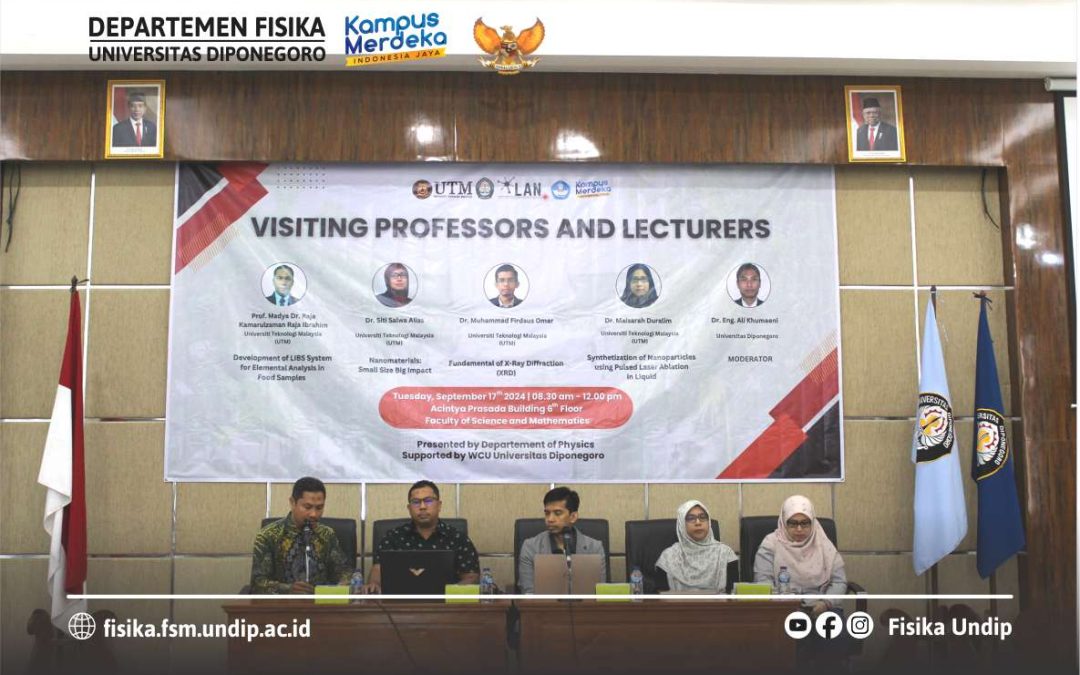On September 17, 2024, an academic visit by professors and guest lecturers took place at Acintya Prasada Building, 6th floor. The event, which ran from 8:30 AM to 12:00 PM, was attended by several experts from the Department of Physics, Faculty of Science, Universiti Teknologi Malaysia (UTM).
The guest speakers presented innovative topics in the field of physics, especially in the development of new technologies. Dr. Raja Kamarulzaman Raja Ibrahim discussed the “Development of Laser Induced Breakdown Spectroscopy (LIBS) System for Elemental Analysis in Food Samples,” highlighting the advancement of LIBS technology for elemental analysis in food samples, which is highly beneficial in food and health research.
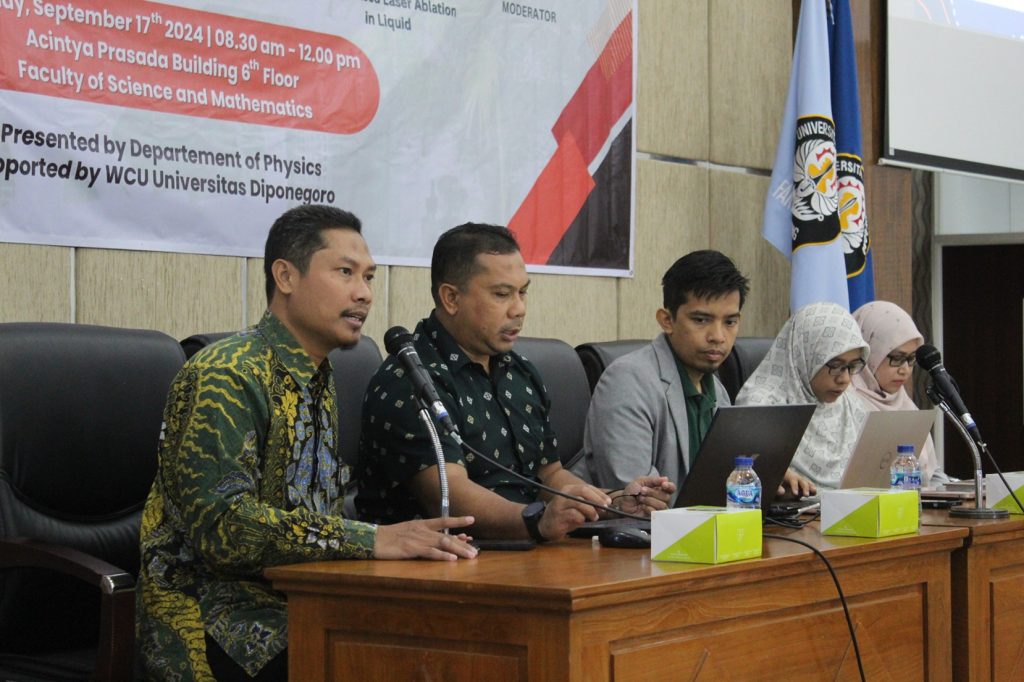
Dr. Maisarah Binti Duralim presented on the “Synthetization of Nanoparticles Using Pulsed Laser Ablation in Liquid,” explaining the process of synthesizing nanoparticles through focused laser ablation in liquid, an advanced technique in nanotechnology. Meanwhile, Dr. Muhammad Firdaus Omar explained the fundamentals of X-ray diffraction (XRD), an essential tool in crystallographic analysis used to study material structures. Dr. Siti Salwa Alias discussed the topic “Nanomaterials: Small Size, Big Impact,” focusing on the vast potential of nanomaterials in various applications, from medical technology to industry, despite their tiny size.
This event was supported by Universitas Diponegoro’s World Class University (WCU) program as part of international academic collaboration. The event is expected to broaden new perspectives and strengthen academic collaboration networks between universities in the field of science and technology.
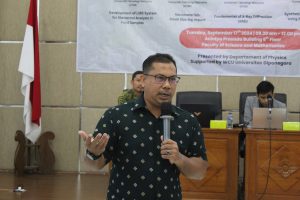
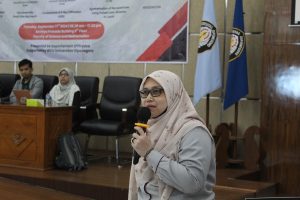
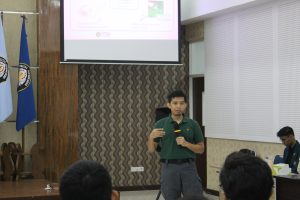
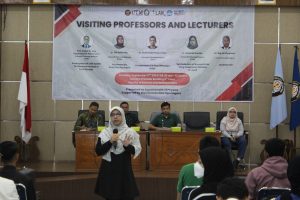
The use of LIBS technology, as explained by Dr. Raja Kamarulzaman Raja Ibrahim, holds significant potential in the food industry, including detecting haram elements, such as pork, and identifying the elemental composition in food products like meatballs. LIBS works by focusing a high-energy laser on the sample surface, creating plasma that ionizes the elements contained within the sample. It can detect specific elements in pork or alcohol in beverages. This technology is fast, non-destructive to the sample, and suitable for large-scale testing in the food industry.
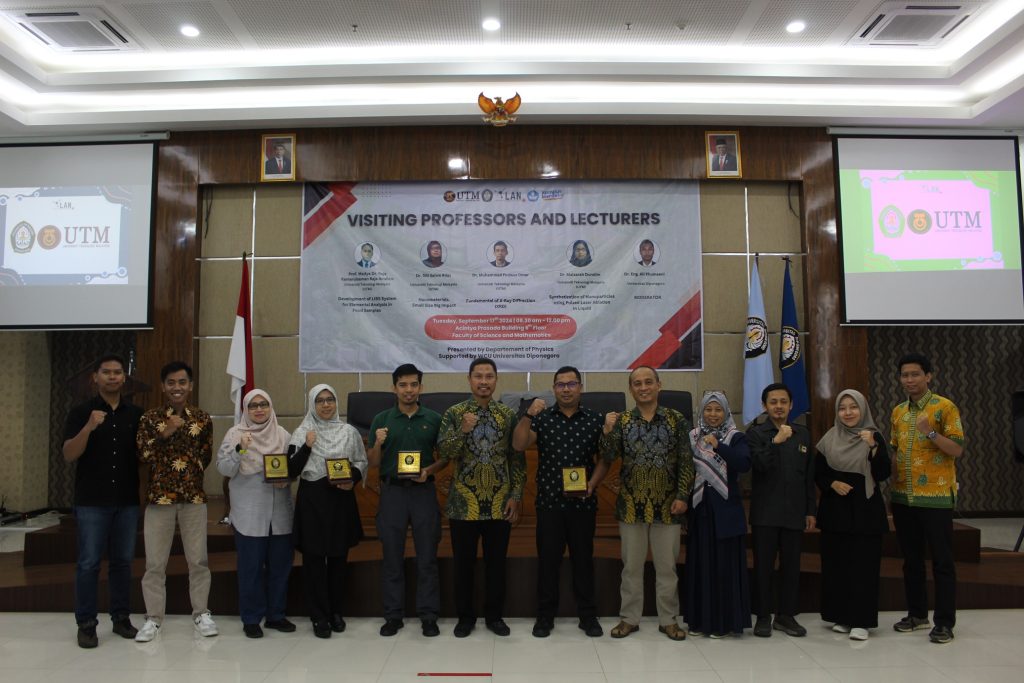
The application of LIBS is also highly relevant in detecting heavy metals and analyzing nutritional content in meatballs, including minerals like calcium, magnesium, sodium, and phosphorus. LIBS can ensure product quality and composition, safeguarding safety and compliance with established standards.

